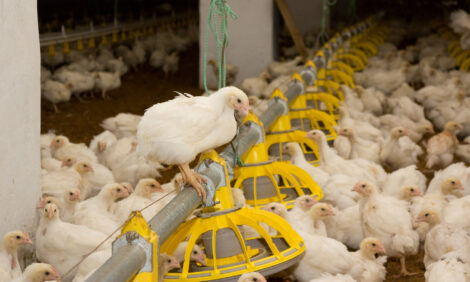



India's farmed chickens given some of the strongest antibiotics
A report by Madlen Davies and Rahul M for the Bureau of Investigative Journalism reveals that chickens in India have been dosed with some of the strongest antibiotics in medicine. One of which, colistin, has been referred to as the "last hope" antibiotic because it is only used in circumstances where no other treatment is possible to fight infection. The World Health Organization has restricted its use in animals and banned it as a growth promoter.The discovery was met with worldwide panic in the medical community as it meant the resistance could be passed to bugs which are already multi-drug resistant, leading to untreatable infections. Rampant use of the drug in livestock farming has been cited as the most likely way mcr-1 was spread. It has been detected in bacteria from animals and humans in more than 30 countries, spanning four continents. Another four colistin resistant genes (mcr-2 to mcr-5) have been discovered since. Colistin-resistant bacteria, once rare, are now widespread.
“Colistin is the last line of defence”, said Professor Walsh, who is also an adviser to the UN on antimicrobial resistance. “It is the only drug we have left to treat critically ill patients with a carbapenem-resistant infection. Giving it to chickens as feed is crazy.”
“Colistin-resistant bacteria will spread on the chicken farms, in the air surrounding them, contaminate the meat, spread to the farm workers, and through their faeces flies will spread it over large distances”, he continued.
He added: “Colistin should only be used on very sick patients. Under any other circumstances it should be thought of and treated as an environmental toxin. It should be labelled as such. It should not be exported all over the world to be used in chicken feed.”
Professor Dame Sally Davies, England’s chief medical officer, also called for a worldwide ban on the use of not just colistin but all antibiotics as growth promoters. “If we have not banned growth promotion within five years we will have failed the global community”, she told the Bureau.
To read the full article by the Bureau of Investigative Journalism, click here.









